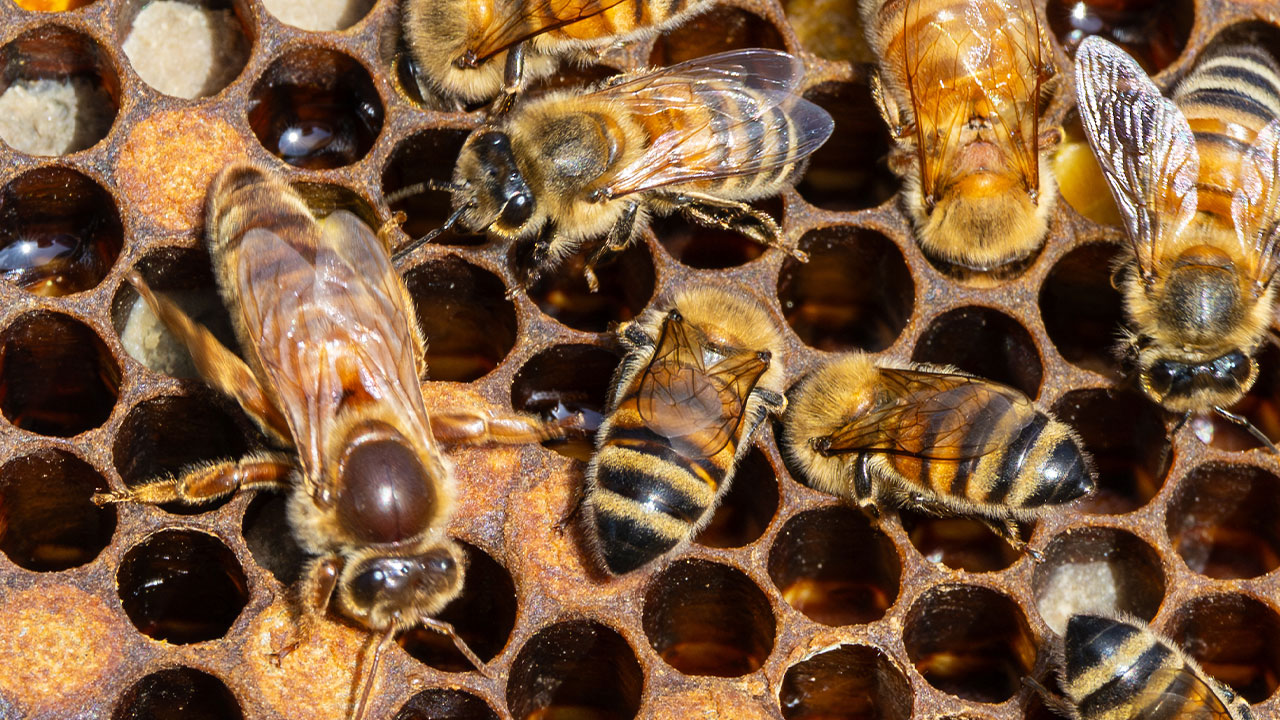content body
The Problem
The health of honey bees and native bees is in crisis, posing a significant threat to agriculture and ecosystems worldwide. Bees are essential pollinators, contributing to the production of many crops that humans rely on for food. However, native bee populations are declining and managed honey bee colonies are dying at high levels due to various stressors, including parasitic mites, pesticide exposure and habitat loss. This has serious implications for food security and biodiversity.
Our Work
At Auburn University's Bee Center, we are leading the charge to address this critical issue. Our mission is to perform impactful research that promotes the health of honey bees and native bees. We collaborate closely with the USDA ARS Stoneville Pollinator Health Research Unit, sharing insights, jointly collecting and analyzing data and co-supervising graduate students. This collaboration has led to the deployment of new tools to manage honey bee pests, the identification of appropriate planting and management actions for wildflowers and the understanding of invasive plants’ role in bee forage.
Due to its vital work, the university's Board of Trustees recently designated the AU Bee Lab as a center. This elevated status solidifies our leadership in bee research, fosters future leaders through impactful research and extension and enhances collaborations among the colleges and the Alabama Cooperative Extension System.
The Bee Center is making significant strides in bee health research. We are leading the U.S. Beekeeping Survey, which tracks the status of managed honey bee health across the country. This survey has revealed critical insights, such as the exceptional number of colony losses overall, as well as the recent higher percentage of losses among beekeepers that are tremendously important for the pollination of specialty crops. These findings inform policymakers and researchers, driving research priorities and shaping agricultural practices.
Our research and education work has a global focus, too, as the honey bee parasitic mite Tropilaelaps mercedesae is spreading throughout Asia and into Eastern Europe. By leading efforts to understand and manage this mite, we are preparing U.S. beekeepers for its potential arrival, demonstrating our commitment to proactive and preventive measures.
We are at the forefront of addressing high colony loss and mortality, particularly due to another honey bee parasitic mite, Varroa destructor. Through the Specialty Crop Research Initiative, a large USDA-supported project, we have teamed up with researchers from across the U.S. and Canada to identify new tools and improve application methods for controlling this mite. Our field trials, conducted under typical beekeeping conditions, are a testament to our practical and solution-oriented approach.

Geoff Williams has worked to support the health of bees for nearly 20 years.
Beyond research
Our impact extends beyond research, involving the community through teaching and outreach. The Bee Center is committed to providing exceptional immersive learning experiences for undergraduate students. By embedding them in our labs and those of our collaborators, we offer real-world experiences that demonstrate their contributions to society. Our students play a critical role in designing and executing experiments, communicating findings and engaging in outreach activities.
We connect with local beekeepers and farmers through field days, state-wide meetings, online surveys and direct communication. Understanding their needs and addressing them practically is at the heart of our work. Our monthly regional webinar series, held in collaboration with Alabama Extension, as well as our beekeeping demonstration videos and in-person workshops are just a few examples of how we deliver education and support to our stakeholders.

The future
Auburn’s Bee Center is not just about today; it's about shaping the future. Our upcoming initiative, SEBees, will provide immersive pollinator research and outreach experiences for undergraduate students. This aligns with Auburn's strategic plan to offer exceptional student experiences, allowing them to make meaningful contributions while preparing them for real-world scenarios.
Our vision is to make lasting contributions to sustainable agriculture and bee conservation. By working closely with our network of collaborators and stakeholders, we aim to be leaders in our field, providing solutions to critical issues and inspiring future generations.
Auburn’s Bee Center is a beacon of innovation, collaboration and impact. We are driving change, leading research and making a significant difference in bee conservation and sustainable agriculture. Through our dedicated efforts, we are positioning Auburn as a leader and driver in this vital field, ensuring a healthier future for bees and the ecosystems they support.







